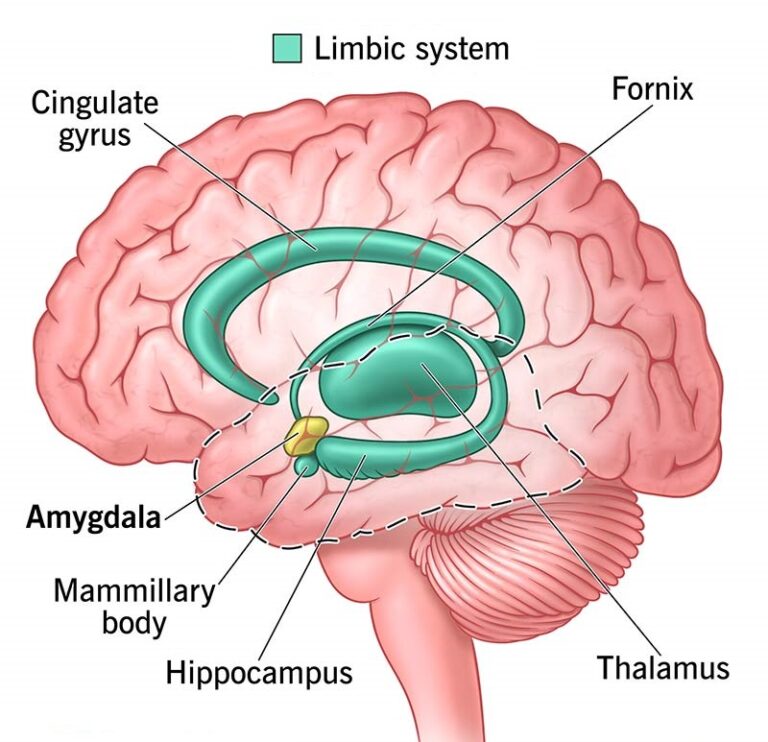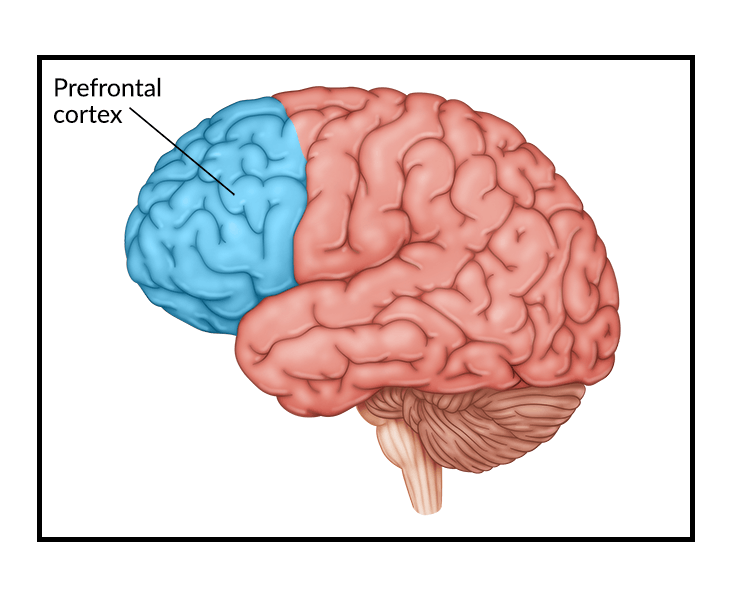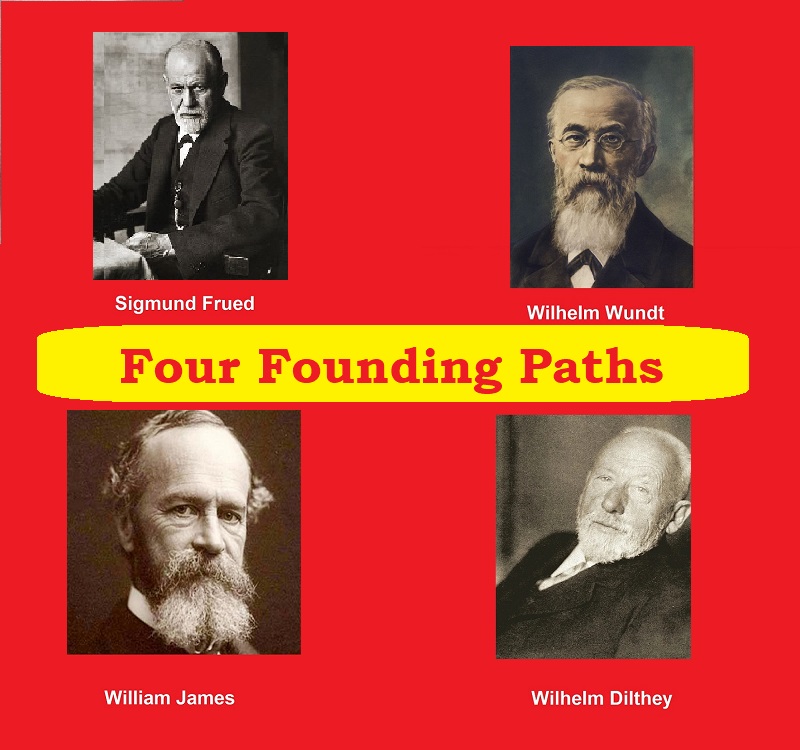
Sigmund Freud (1856-1939), Austrian neurologist. Founder of Psychoanalysis. (Colorised black and white print). (Photo by The Print Collector/Print Collector/Getty Images)
Wundt, Freud, James, and Dilthey
The field of psychology, as an academic discipline, owes its origins to the pioneering work of four pivotal figures: Wilhelm Wundt, Sigmund Freud, William James, and Wilhelm Dilthey. Each of these intellectual giants contributed uniquely to the establishment of psychology, steering its evolution from philosophical musings to a robust scientific field. Their combined efforts laid the foundational stones for what has become a diverse and richly layered discipline.
Wilhelm Wundt: The Experimental Innovator
Early Life and Career
Wilhelm Wundt (1832-1920), often hailed as the father of modern psychology, was a German philosopher and physiologist. His academic journey led him to the University of Leipzig, where in 1879, he established the first experimental psychology laboratory, formally distinguishing psychology from philosophy and physiology.
Foundational Contributions
Wundt’s structuralism sought to dissect the structure of the mind through introspection. His approach was methodical, focusing on the components of consciousness—sensations, feelings, and thoughts. By employing rigorous experimental methods, Wundt sought to quantify mental processes, emphasizing that psychology should be studied scientifically.
Legacy and Impact
Wundt’s laboratory became a training ground for future psychologists, including notable figures like Edward Titchener, who would go on to spread Wundt’s experimental approach. Wundt’s insistence on systematic experimentation provided psychology with a method to explore the mind with precision and empirical rigor.
Table: Wundt’s Key Contributions
| Contribution | Description |
|---|---|
| First Psychology Laboratory | Established in 1879, signifying the birth of experimental psychology |
| Structuralism | Focused on breaking down mental processes into basic elements |
| Introspection | Method for self-reporting thoughts and feelings |
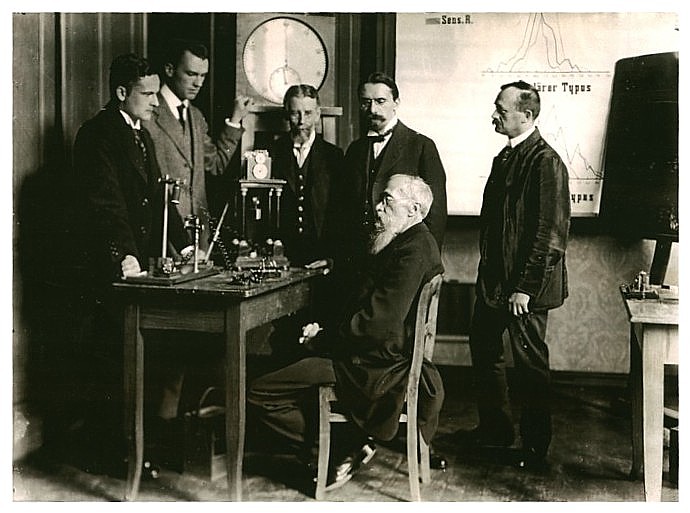
Visual: Wundt’s Experimental Setup An illustration of Wundt’s laboratory setup at the University of Leipzig.
Sigmund Freud: The Depth Psychologist
Early Life and Career
Sigmund Freud (1856-1939), the Austrian neurologist, revolutionized the understanding of human psychology with his development of psychoanalysis. Freud’s work was grounded in his observations of patients, leading him to explore the depths of the unconscious mind.
Foundational Contributions
Freud introduced the concept of the unconscious, proposing that much of human behavior is influenced by unconscious desires and conflicts. His structural model of the psyche—comprising the id, ego, and superego—provided a framework for understanding the inner workings of the mind. Techniques like free association and dream analysis were devised to uncover repressed memories and desires.
Legacy and Impact
Freud’s theories were initially met with skepticism but gradually gained acceptance and profoundly influenced not only psychology but also art, literature, and popular culture. His exploration of the unconscious mind laid the groundwork for subsequent developments in psychodynamic theory and clinical practice.
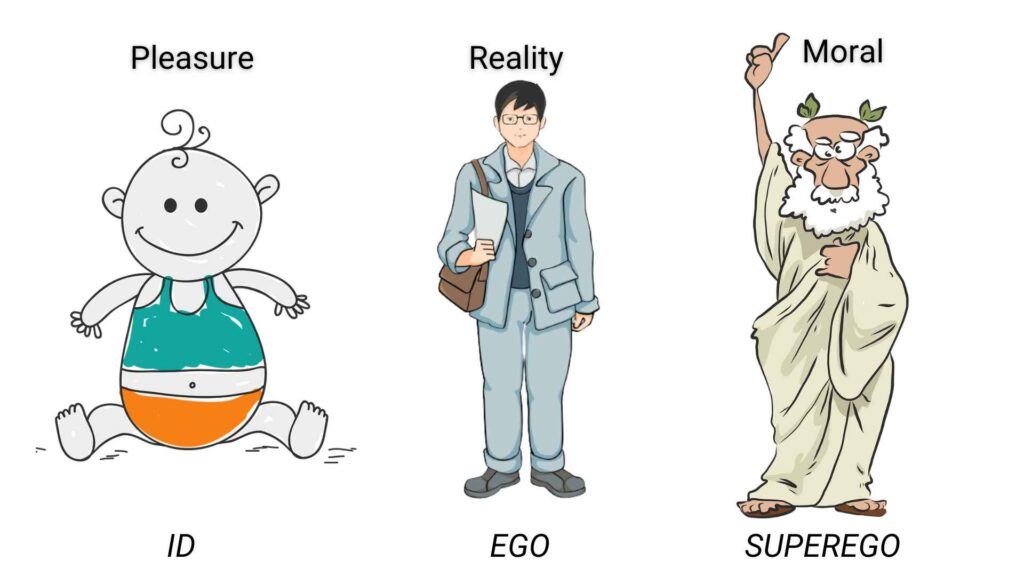
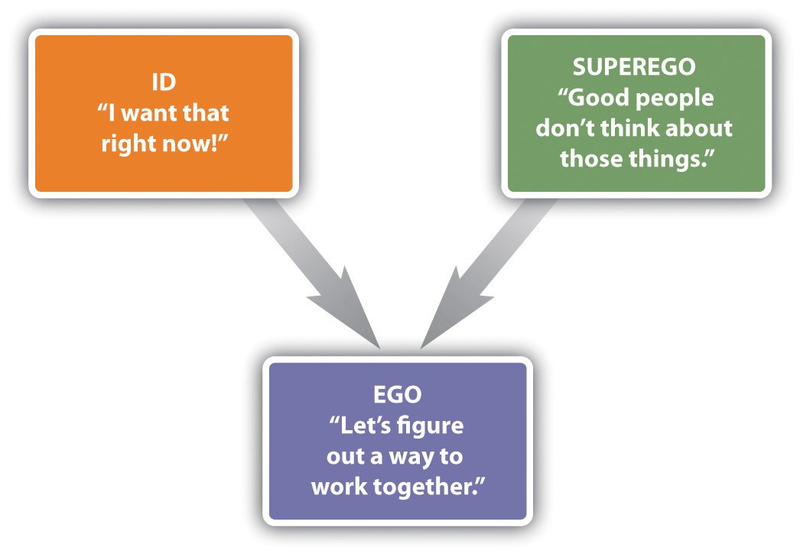
Visual: Freud’s Model of the Psyche Freud’s model illustrates the interactions between the id, ego, and superego.
Table: Freud’s Key Contributions
| Contribution | Description |
|---|---|
| Psychoanalysis | Method for treating mental disorders through dialogue |
| Id, Ego, Superego | Components of the human psyche |
| Unconscious Mind | Emphasized the role of unconscious processes in shaping behavior |
William James: The Functionalist Philosopher
Early Life and Career
William James (1842-1910), an American philosopher and psychologist, is often considered the father of American psychology. He was a polymath who brought a pragmatic and functionalist approach to the study of the mind.
Foundational Contributions
James’s work emphasized the function of mental processes rather than their structure. He argued that consciousness and behavior serve adaptive purposes, influenced by evolutionary theory. His influential text, “The Principles of Psychology” (1890), remains a cornerstone in the study of psychology.
Legacy and Impact
James’s ideas paved the way for applied psychology, including educational psychology and industrial-organizational psychology. His emphasis on the practical applications of psychological research helped to broaden the scope of the field.
Table: James’s Key Contributions
| Contribution | Description |
|---|---|
| Functionalism | Focus on the purpose and adaptive functions of consciousness |
| James-Lange Theory | Theory of emotion based on physiological responses |
| Principles of Psychology | Influential book on psychological concepts |

Visual: James-Lange Theory of Emotion The James-Lange theory proposes that emotions result from physiological reactions to events.
Wilhelm Dilthey: The Hermeneutic Philosopher
Early Life and Career
Wilhelm Dilthey (1833-1911) was a German philosopher who championed the importance of understanding human experiences and historical context in the study of psychology. Unlike his contemporaries, Dilthey emphasized the interpretive nature of human sciences.
Foundational Contributions
Dilthey’s hermeneutic method involved understanding the subjective meaning of human experiences. He argued for the necessity of empathy and historical context in psychological study, distinguishing between the natural sciences (Naturwissenschaften) and the human sciences (Geisteswissenschaften).
Legacy and Impact
Dilthey’s emphasis on the interpretive nature of human psychology laid the groundwork for qualitative research methods. His ideas have influenced fields such as phenomenology, narrative psychology, and cultural psychology, which focus on understanding human experiences in context.
Table: Dilthey’s Key Contributions
| Contribution | Description |
|---|---|
| Hermeneutics | Method of interpreting and understanding meaning |
| Human Sciences | Emphasis on historical and cultural context |
| Empathy and Interpretation | Importance of understanding subjective experiences |
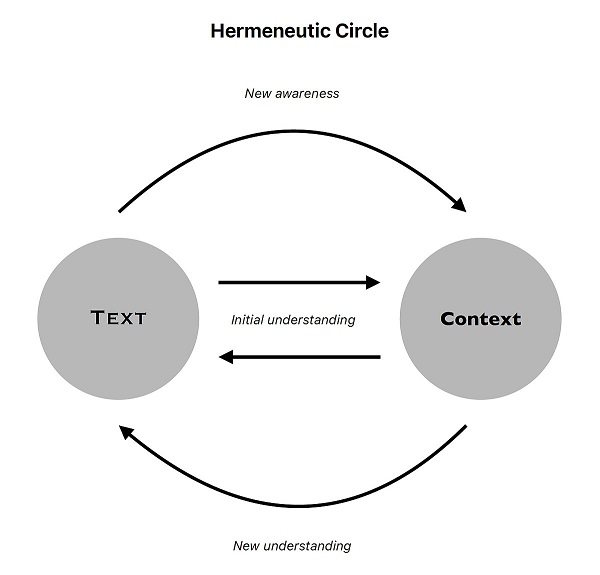
Visual: Dilthey’s Hermeneutic Circle The hermeneutic circle illustrates the process of understanding through context and interpretation.
Conclusion
The contributions of Wundt, Freud, James, and Dilthey each represent distinct pathways that have shaped the evolution of academic psychology. Their innovative approaches and theoretical frameworks provided the bedrock for the diverse and multidisciplinary field we recognize today. From Wundt’s experimental rigor to Freud’s exploration of the unconscious, James’s functional pragmatism, and Dilthey’s interpretive methods, these pioneers have left an indelible mark on the history of psychology.
References
- Wundt, W. (1874). Principles of Physiological Psychology.
- Freud, S. (1900). The Interpretation of Dreams.
- James, W. (1890). Principles of Psychology.
- Dilthey, W. (1883). Introduction to the Human Sciences.






